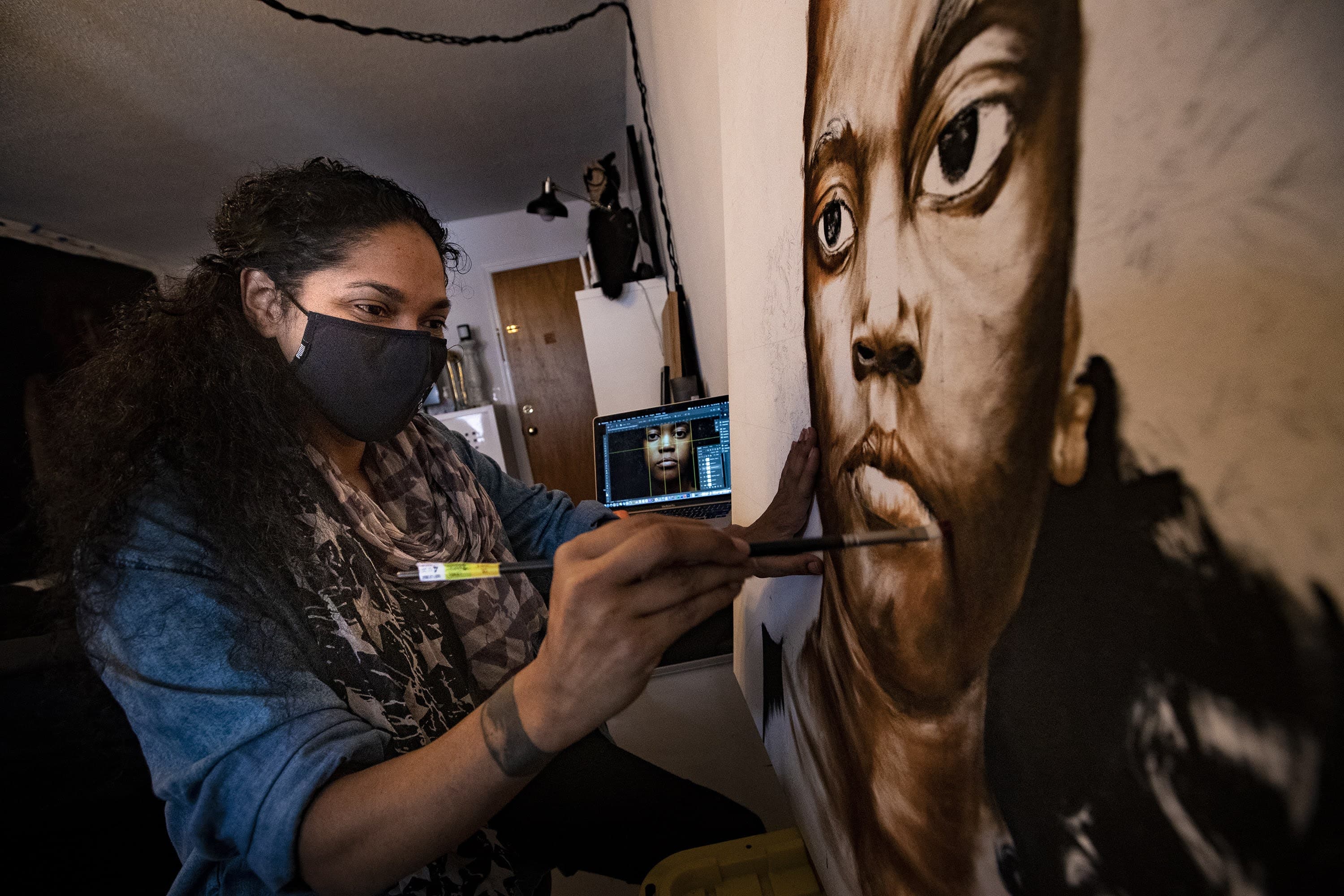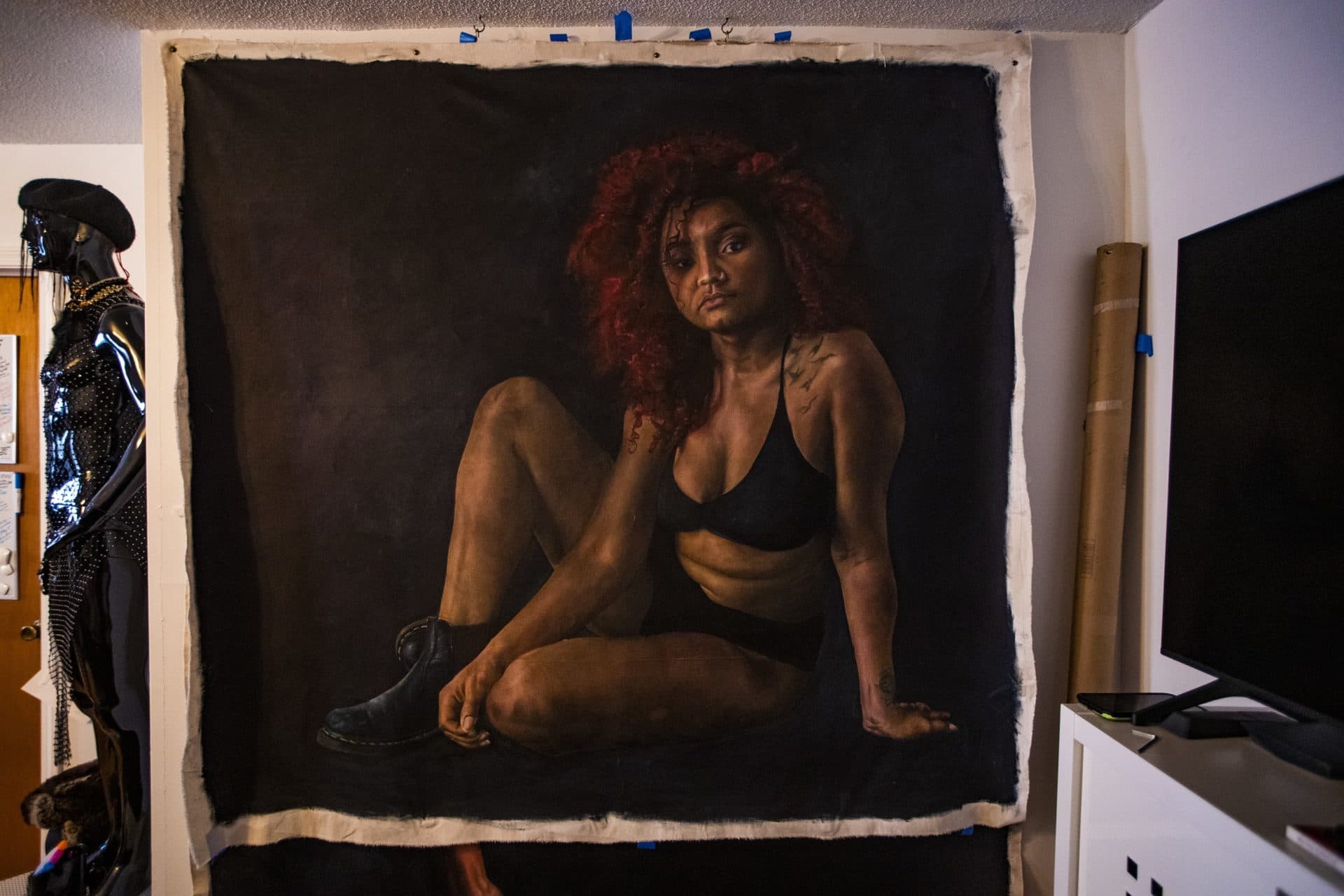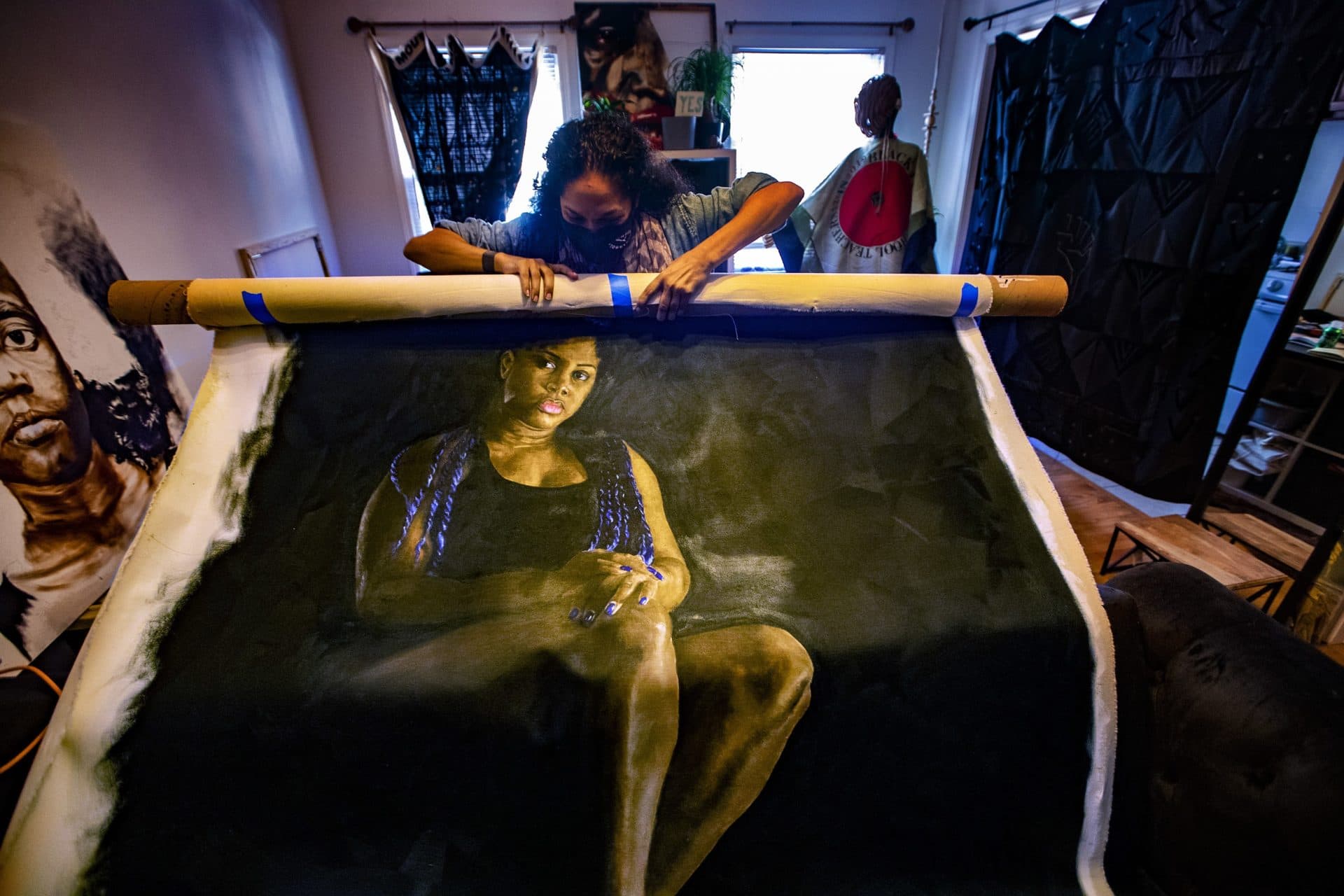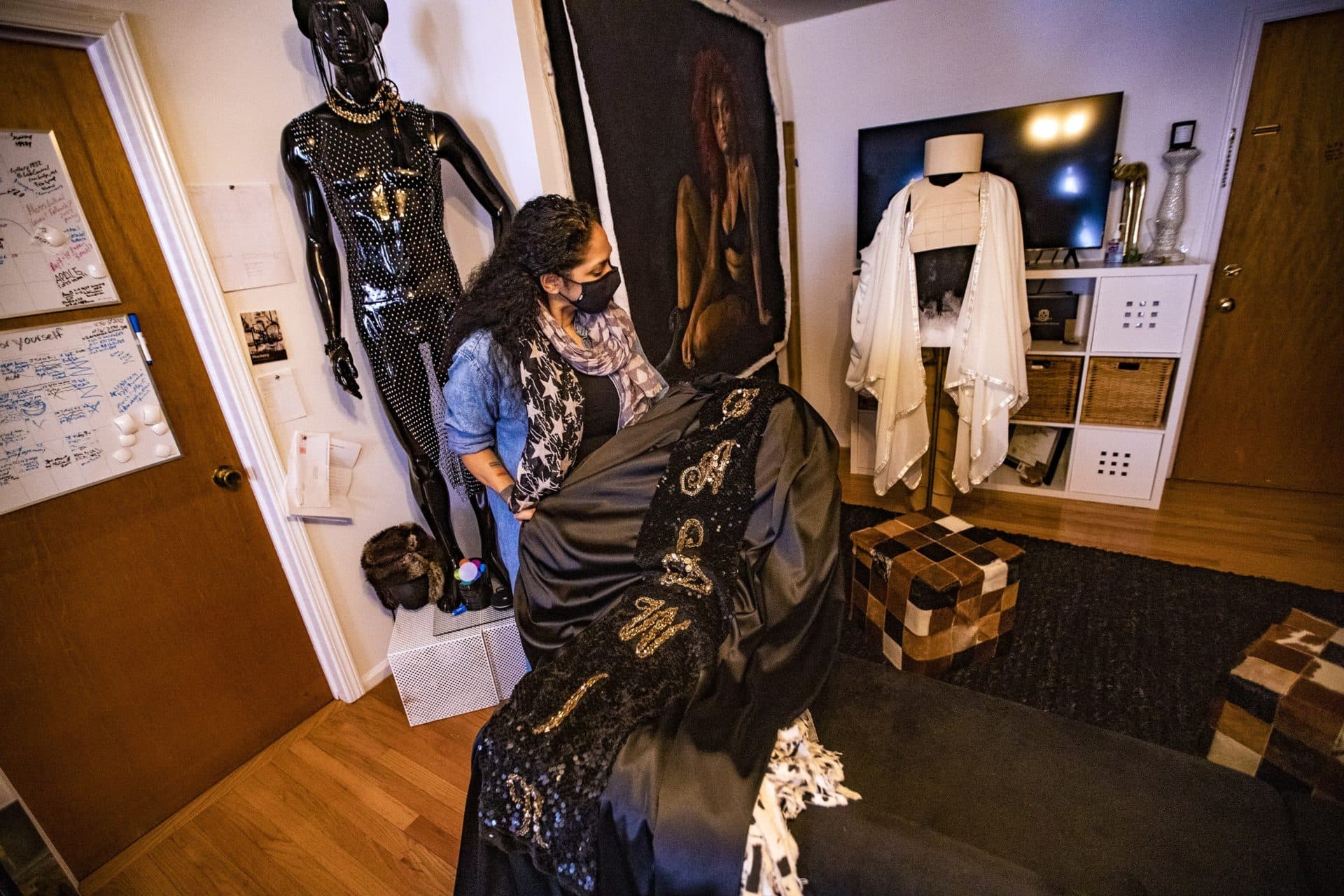Advertisement
The Creative Grind
Painting Black Skin, An Artist Navigates Success And Loss In A Pandemic Year

It has been one year since the pandemic began. In "The Creative Grind" series, ARTery reporters spoke to individual creatives to assess the financial and artistic impact of COVID-19, on a granular level.
Last year, artist Marla McLeod sold a painting for nearly $10,000, enough money to pay her current rent for more than half a year. She also worked two jobs, doubling her income. Teaching art on Zoom let her jump from Tufts University to Southern Connecticut State University without leaving her apartment.
“So it went from really having to work with next to nothing — it's difficult, but it's when you're used to living like that, I suppose it's OK," McLeod said. "But now I don't have to and I feel so good. I feel like my mind feels so free and I get to do more work."
McLeod was finishing her masters in fine arts at Tufts last spring when the pandemic forced the university to shut down its studio space. She moved in with a friend just to have adequate space to paint. Her canvases moved with her, occupying wall space in her friend’s home, her sister’s basement, and now her own small studio in New Haven, Connecticut.
“For me, home is wherever I make it," she said. "But it's really important for me to have a space that I feel like is home. And there was a period of time like in between having to be at my friend's house and having my own space and then the COVID situation and moving to my sister's house. It was like none of these spaces feel like mine. That was disturbing to me. I didn't like it.”
She often says her apartment feels dry if it isn’t full of art.

Layers of fabric adorn several mannequins. She’s preparing for a thesis exhibition that should have happened last year. And it did, online. Her oil paintings reach from floor to ceiling and are stacked against the wall. Five portraits of Black women, friends of McLeod’s that relay strength and softness and dignity.
“If I want her skin to feel soft and luscious and realistic, I have to make sure to put those purples and those yellows and those greens in there and the spaces that they go in," she said. "And people like what, purple, yellow and green? Yes, purple, yellow and green."
She uses burnt sienna to capture the red undertones found in some brown skin. McLeod's thesis work focused on Black women.
"It was really looking at their identity and looking at the expression of Black women and how we have seen them in history, and how I wanted to present them today," she said.
Advertisement

Each painting has a textile, inspired by Mali mud cloth, which she decorates with symbols of Black pride and culture and paired with words, usually a phrase of protection from each woman's mother.
What McLeod sees when she looks at the final painting she completed for that series will always be different from what others see.
Someone else might notice the painstaking brushstrokes, texture, and colors that bring her large-scale portraits to life. They may see the contrast of the dark background against the figure and the vivid way she paints Black skin. What McLeod sees as she unrolls this particular canvas of dear friend is loss.
“One of the things about the painting is that I have to focus and I have to focus on exactly what I'm doing and exactly where I'm at, what color I'm putting, where how much of it and things like that," McLeod said. "And so with this one, I think I spent more time wiping my eyes and that makes me lose concentration, it makes me lose where I’m at in a painting.”

Her brother died in Seattle last year, two days before her thesis deadline. Everything stopped. She asked for an extension. She spiraled, sitting in front of canvases, unable to work and confronted with this sudden pang of grief.
McLeod is one of three, born in California and raised in foster care, not always together. It’s still unknown how he passed. And because of the pandemic, they couldn’t make funeral arrangements. She still hasn’t visited his grave.
“That was difficult. So I had to say in my head, things are going to keep going. Everything is absolutely insane at that time," she said. "COVID was in full swing. Every time I would speak to someone, someone was dying. His [death] hit me really hard, because it's my brother, right? It's only the three of us and and like in life, really.”

Listening to Whitney Houston and sometimes sitting in silence, McLeod immersed herself in her canvases and fabric art, sitting over her sewing machine using her textiles to make statements about Black life. All the while processing.
Some of this fabric art is inspired by W.E.B. Du Bois’ data visualizations, specifically one about the number of Black teachers in Georgia. On a cape, McLeod displays contemporary information about the number of Black educators in public schools.
What she completed remains a testament to this period.
"So when you look at this, what do you see?" I asked her.
"I see ... the painting that I was able to complete, regardless of the emotional situation that I was going through," she said. "It's part of why I hesitate to alter it, you know, because it's like this is when you just knew you could not do it. This is what you are able to do."
To McLeod, her art continues to serve as both an escape and a catharsis. It allows her the means to not simply survive, but to live.
This segment aired on March 17, 2021.
